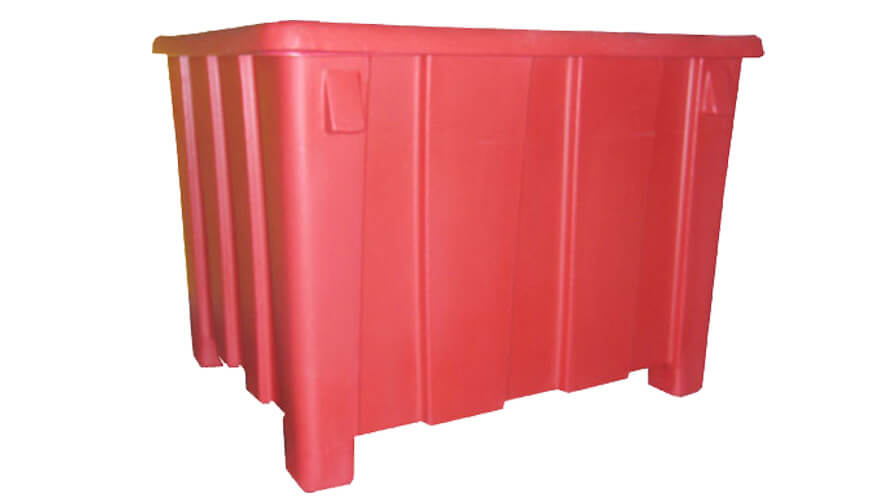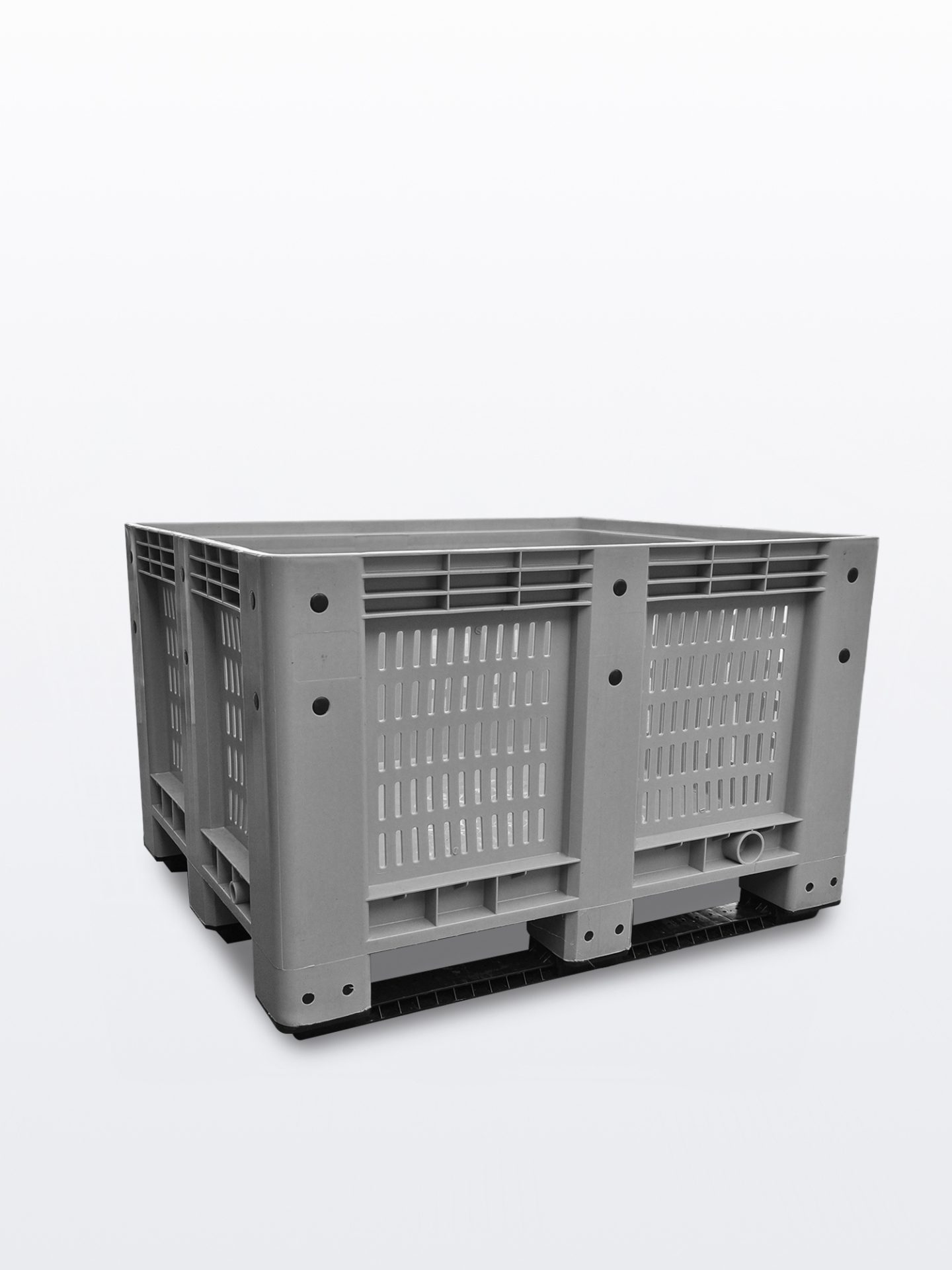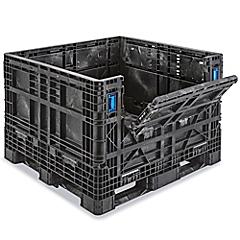A Comprehensive Guide to the Various Types of Mass Plastic Containers Available Today
Bulk plastic containers play a crucial duty in numerous sectors, providing solutions for storage and transportation. Their varied kinds deal with different demands, from rigid alternatives for solid products to flexible containers suiting numerous forms. Each kind presents distinct advantages, making it crucial to understand their applications and features. As markets develop, so do the demands for effective container remedies. What aspects should one consider when picking the best bulk container?
Review of Mass Plastic Containers

Sorts Of Mass Plastic Containers
Mass plastic containers come in different kinds, each fit to particular applications. Rigid bulk containers, adaptable bulk containers, and intermediate mass containers represent the key classifications, each offering unique benefits. Recognizing these types is essential for choosing the appropriate container for transporting and saving materials.

Inflexible Mass Containers
Stiff bulk containers are vital for efficient storage space and transportation of different products across sectors. These containers are typically constructed from resilient plastics, enabling them to endure extreme handling and ecological problems. They can be found in different forms and sizes, consisting of drums, totes, and containers, making them ideal for storing every little thing from granular compounds to liquids. Inflexible containers frequently feature reinforced wall surfaces and safe covers, making certain the contents remain protected throughout transportation. Their stackable layout makes the most of storage area, making them excellent for storehouses and producing centers. Additionally, numerous stiff mass containers are recyclable and multiple-use, adding to sustainability efforts. In general, their toughness and convenience make rigid bulk containers an important component in supply chain operations.
Flexible Bulk Containers
Flexible bulk containers, usually described as flexible intermediate mass containers (FIBCs), act as a versatile solution for moving and saving a selection of dry materials. These containers are usually made from woven polypropylene and are designed to be light-weight yet solid, permitting reliable handling and piling. Their adaptability enables them to fit numerous sizes and shapes, making them suitable for items varying from grains to chemicals. FIBCs can be outfitted with functions such as spouts for easy dental filling and discharge, as well as safety layers for enhanced toughness. Additionally, they are reusable and recyclable, contributing to sustainable techniques in sectors such as farming, food processing, and construction. In general, versatile bulk containers supply a efficient and economical option for mass material management.
Intermediate Mass Containers
Intermediate bulk containers (IBCs) are essential for the efficient transport and storage of fluids and granular materials throughout different markets. These containers usually have a capacity ranging from 275 to 330 gallons and are designed for very easy stacking and managing. Made from durable products like high-density polyethylene or steel, IBCs supply superb security versus contamination and ecological factors. Their style includes attributes such as a built-in pallet for forklift access and a removable top for very easy dental filling and cleaning. IBCs are commonly used in chemical, food, and pharmaceutical industries, making certain conformity with security guidelines. Their versatility and reusability make them a cost-effective option for bulk storage space and transport, adding to provide chain performance and sustainability.
Functions and Advantages of Bulk Plastic Containers
Bulk plastic containers are important devices in various markets, offering a mix of resilience and usefulness. These containers are constructed from high-quality materials, making them immune to influences, chemicals, and ecological variables. This effectiveness guarantees item safety and security throughout storage and transportation.
Additionally, bulk plastic containers are light-weight, assisting in convenience of minimizing and dealing with delivery costs. Their stackable style optimizes storage space efficiency, permitting for enhanced storehouse room. Several designs feature safe and secure covers or closures, giving an impermeable seal that avoids and maintains components contamination.
In addition, bulk plastic containers are recyclable and usually recyclable, adding to lasting methods. Their versatility enables a wide variety of applications, from food storage space to commercial usage, improving their value throughout fields. Organizations benefit from the lengthy life expectancy and reduced maintenance needs of these containers, making them a cost-effective remedy for both lasting and short-term requirements.
Industries That Make Use Of Mass Plastic Containers
Different markets profit from using bulk plastic containers, each leveraging their special residential or commercial properties for specific applications. The food and beverage industry depends on these containers for risk-free storage space and transportation of products, while the chemical manufacturing sector utilizes them for dealing with harmful materials. Furthermore, the pharmaceutical circulation needs stress the importance of resilience and sanitation in packaging services.
Food and Beverage Industry
As the demand for reliable and safe storage space services continues to climb, the food and beverage industry progressively counts on mass plastic containers for their operational requirements. These containers supply durable, lightweight, and versatile options for keeping components, completed items, and waste products. Made from food-grade materials, they ensure compliance with health and wellness and safety and security criteria. Different layouts, such as stackable containers and carry boxes, optimize space throughout transportation and storage space, improving logistical effectiveness. In addition, the transparency of some bulk containers enables easy supply management, lowering the risk of spoilage. With the sector's concentrate on sustainability, several producers are currently using recyclable and multiple-use choices, straightening with eco-friendly techniques while meeting the high demands of food security review and hygiene.
Chemical Manufacturing Sector
The chemical manufacturing field depends heavily on bulk plastic containers for the safe and effective storage of resources, intermediates, and ended up products. These containers are created to withstand various chemicals, ensuring that harmful products do not leak or break down the container itself. Common types consist of high-density polyethylene (HDPE) and polypropylene containers, which provide superb chemical resistance and resilience. Their lightweight nature and stackable style help with transport and storage, enhancing area in producing facilities. Furthermore, several bulk plastic containers feature attributes such as tamper-evident seals and easy-to-read labeling, boosting security and conformity with industry policies. On the whole, mass plastic containers are essential to the chemical manufacturing process, offering dependable solutions for handling diverse compounds.
Drug Distribution Demands
Drug distribution depends on bulk plastic containers to fulfill strict safety and security and regulatory demands. These containers are necessary for carrying and saving a variety of pharmaceutical products, consisting of energetic pharmaceutical active ingredients (APIs) and completed medications. Their style warranties protection against light, moisture, and contamination, preserving the honesty of delicate products. Furthermore, bulk plastic containers are certified with industry standards such as Good Production Practices (GMP) and are typically made from materials that are FDA-approved. Making use of these containers boosts performance in the supply chain, permitting secure, massive circulation while lessening waste. Firms in the pharmaceutical field prioritize using sturdy, watertight, and tamper-evident containers to guarantee product safety and top quality throughout the logistics procedure.
Factors to consider for Selecting the Right Container
When selecting the proper bulk plastic container, numerous elements must be carefully considered to guarantee optimal capability and safety. The nature of the materials to be stored is vital; this content compatibility with the container's material can affect honesty and safety and security. Bulk Plastic Containers. In addition, the container's size and form should straighten with the storage and transport needs, assuring reliable room usage
Tons ability is an additional vital factor to consider, as it needs to fit the weight of contents without threat of damage or failing. The style features, such as venting or covers, can influence use and gain access to. Compliance with sector guidelines is necessary, specifically in industries like drugs, where safety standards are rigid.
The anticipated life expectancy and toughness of the container must be examined to validate it satisfies the functional requirements without constant substitute. By evaluating these factors, one can select one of the most ideal bulk plastic container for details applications.
Environmental Influence and Sustainability
As companies progressively focus on sustainability, the environmental influence of bulk plastic containers has actually come under scrutiny. These containers, frequently made from products such as polyethylene or polypropylene, add greatly to plastic waste if not taken care of correctly. Their production involves the usage of fossil gas, which can cause raised greenhouse gas emissions. Nevertheless, advancements in reusing technology and the advancement of biodegradable options are helping to reduce these worries.
Lots of suppliers are adopting techniques that stress the usage of recycled materials, thereby decreasing the image source need for virgin plastics. The durability of mass plastic containers also contributes; they are made to be reused multiple times, which can minimize their general ecological impact when contrasted to single-use options. Eventually, the sector faces the obstacle of stabilizing functionality with ecological responsibility, making sustainable techniques important for the future of mass plastic containers.
Ideal Practices for Storage and Transportation
Reliable storage space and transport of bulk plastic containers considerably affect both functional performance and sustainability. To optimize space, companies ought to pile containers firmly, assuring stability and avoiding damages. Appropriate labeling is necessary for simple recognition, which improves access procedures. Additionally, maintaining a organized and tidy storage area reduces the danger of contamination and boosts safety and security.
For transportation, picking the ideal car is crucial; containers must be safeguarded to avoid changing during transportation. Companies ought to additionally take into consideration making use of pallets to assist in simpler loading and dumping. Regular inspections of containers for wear and tear can avoid costly replacements.
Temperature level control is an additional important facet, as severe conditions can endanger the stability of the plastic. Training personnel on ideal practices for handling and transport guarantees compliance and promotes a culture of safety. By carrying out these best methods, organizations can improve their operational effectiveness while adding to ecological sustainability.
Frequently Asked Concerns
How Do I Tidy Bulk Plastic Containers Properly?
To clean mass plastic containers properly, one need to wash them with cozy water, utilize a light detergent and scrub with a soft brush. Wash thoroughly, then allow to air dry entirely prior to storage or reuse.
What Is the Lifespan of Mass Plastic Containers?
The life expectancy of mass plastic containers normally varies from 5 to ten years, relying on the product, usage, and ecological conditions. Proper upkeep and storage can greatly extend their functionality and longevity in time.
Can Bulk Plastic Containers Be Customized?

Do Bulk Plastic Containers Have Guarantee Options?

Are There Regulations for Making Use Of Bulk Plastic Containers?
Yes, regulations exist for utilizing mass plastic containers, primarily focused on safety and security, environmental influence, and material conformity. These laws guarantee that containers fulfill sector criteria and appropriate for transferring different materials securely and effectively.
Inflexible mass containers, versatile bulk containers, and intermediate mass containers stand for the primary groups, each offering distinct advantages. Versatile bulk containers, commonly referred to as versatile intermediate bulk containers (FIBCs), serve as a flexible service for storing a variety and transporting of completely dry products. The chemical production field relies heavily on bulk plastic containers for the secure and reliable storage of raw products, intermediates, and ended up products. plastic bulk containers. These containers are created to hold up against different chemicals, guaranteeing that unsafe materials do not leak or break down the container itself. Additionally, mass plastic containers are certified with industry standards such as Great Manufacturing Practices (GMP) and are usually made from materials that are FDA-approved